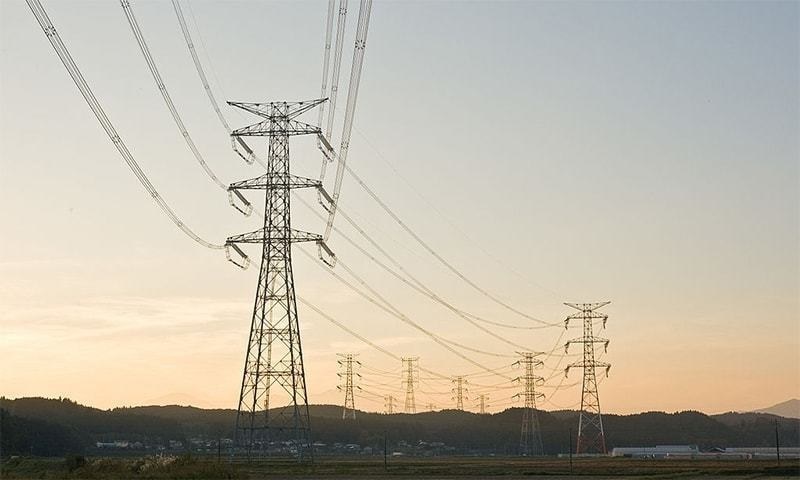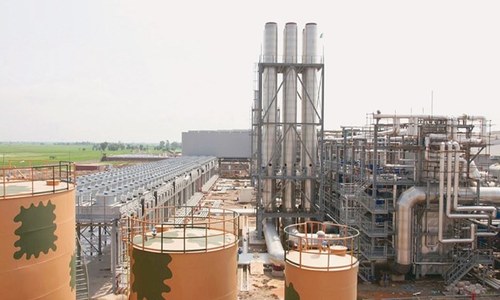ISLAMABAD: The government may have to increase electricity tariff for consumers two times before December, in addition to making monthly fuel price adjustments and diverting substantial funds from taxpayers’ money to the power sector, to keep the International Monetary Fund programme going, according to sources.
Background discussions with government officials suggested the exact sizes of and schedule for tariff increases and disbursement of enhanced subsidy payments would be taken up by the Economic Coordination Committee (ECC) of the Cabinet on Wednesday. And decisions in this regard would have to be finalised within the current month.
The papers prepared by the power division with inputs from lending agencies suggest the average power tariff has to be increased by more than Rs3 per unit for all power companies including K-Electric in two coming quarters.
Official says about Rs220bn will be raised through two adjustments before December
Notifications would be issued for a tariff increase of about Rs1.5 per unit firstly with effect from July 1 and then for a similar amount with effect from October 1, said some officials. However, other sources said the size of tariff increase may be higher in one quarter and lower in the other.
In any case about Rs220bn would be raised through these two adjustments, a senior official said.
Also, about Rs130bn worth of additional funds would have to be diverted out of federal revenue in the shape of higher subsidy, which according to the 2020-21 budget is “booked at about Rs145bn”. The subsidies are not only under-budgeted but are not disbursed in time by the finance ministry, thus creating cash flow problems for the power companies and ultimately serving to fuel the circular debt.
An official said it was a classic example of double jeopardy for the consumers, who would have to finance higher electricity bills and at the same time suffer because of diversion of public funds that could have been utilised for some productive purpose.
He said the government agencies and companies would be required to play their due role in this regard, otherwise the tariff adjustments and funding from budgetary heads would remain unsustainable.
Therefore, under key performance indicator (KPI) benchmarks the power sector losses would have to be reduced from about 17 per cent at present to about 15.5pc. The recovery of electricity bills, which stands at about 90pc at present, would also have to be increased to 96pc.
The combination of these two measures would reduce power sector bleeding by about Rs150bn per annum by 2023. However, during the same period the consumers would have to face an additional burden of about Rs420-440bn through tariff adjustments.
Unless all these steps are taken the circular debt would go beyond Rs3 trillion in two years, from about Rs2.3tr. As a reference, the power division has reported that circular debt, which increased by Rs538bn in fiscal year 2019-20, would go up by Rs436bn during the current fiscal and then jump by Rs880bn in FY2021-22 and by Rs1.26tr in FY2022-23.
The stock of old debt that currently stands at about Rs980bn would also be gradually converted into public debt — about Rs300bn over the next two years. The Rs125bn financing of this debt stock in the last fiscal year was done through a Financing Cost Surcharge of about 43 paisa per unit that may be jacked up for high-worth consumers.
The reduction in rate of return on public sector power plants — that of Wapda and Gencos, etc — would also contain circular debt by about Rs55bn in FY2022 and Rs65bn in FY2023.
When the ECC meets this week, it would take up at least six different summaries, one of which — about release of power sector subsidy for FY2020-21 — was briefly discussed last week.
It would also discuss the decisions of the power regulator “in the matter of fuel charges adjustments for the months of November 2019 to June 2020 for Wapda-Ex Discos”. The committee would also take up a summary of the power division regarding “NAB investigation and information requirement regarding MOUs/Agreements and final negotiations between IPPs and the government”.
Published in Dawn, March 15th, 2021















































